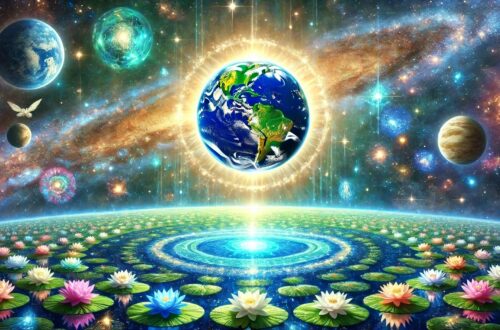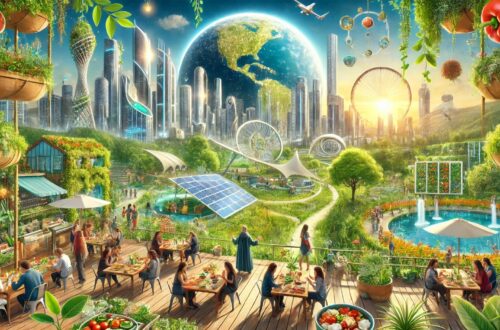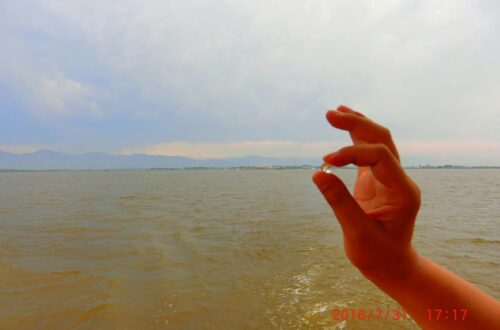What is Civilization?

What is Civilization?
What is civilization? When people discuss civilization, the definitions that come to mind must be diverse, but it is certain that they all consist of beautiful and positive words. Civilization represents development and progress. Civilization is certainly not barbaric or backward. Humanity hopes that its cities and nations become increasingly civilized. In fact, when each individual progresses and develops, the entire Earth becomes more civilized. Civilization exists in every aspect, from the smallest details to the grandest scales. The improvement of an individual’s behavior is also civilization, just as the fate of humanity and the elevation of Earth’s dimension are also aspects of civilization.
Below, I will succinctly explain my understanding of what civilization truly is through ten key points:
1. Civilization is Wealth
According to the dictionary, civilization is the sum of the wealth created by humanity, particularly referring to spiritual wealth, such as literature, art, education, and science. But what is wealth? Wealth is not merely the possession of money or GDP—these are superficial material indicators. While material prosperity can reflect an improvement in people’s living standards, it does not equate to inner fulfillment.
For instance, many consider Dubai to be a wealthy nation, yet it suffers from extreme heat and significant gender inequality. Men can marry four wives, while women are not allowed to expose their skin. Despite its luxury, such a place can hardly be called truly civilized. True wealth is not just material abundance but something that can be inherited—classics, wisdom, and principles that are meaningful to humanity. The greatest wealth on Earth is the wisdom left behind by ancient sages, guiding each being to choose the right path forward.
2. Civilization is Development
Development means progress. Any regressive action is uncivilized. Civilization must be kind, good, bright, and positive. The abolition of slavery and feudalism signifies social progress, as humanity abandons unjust and unequal systems. Only by recognizing what is wrong can we move forward.
3. Civilization is Relationships
Civilization encompasses the relationships between individuals, society, and nature. True civilization is living in harmony with the natural environment. Earth does not belong solely to humans. If humans harm other living beings or even their kind out of greed, that is not civilization.
If humans exploit the environment for their own benefit, this is also not civilization. Selfishness, arrogance, and oppression are not civilized. True civilization is harmonious and equal. If individuals or nations fail to uphold these principles, we cannot consider them truly civilized.
4. Civilization is a State
Civilization manifests as a society reaches a higher stage of development. Civilization has different levels and dimensions. Within the cycle of life and death, pure civilization does not exist. The higher the dimension, the purer it becomes, and thus, the more civilized it is.
The Western Pure Land is an advanced civilization, an ideal model that the universe should learn from and emulate. It sets an example for what a truly civilized world should be. Therefore, when ordinary people speak of civilization, their perspectives are relative; different positions lead to vastly different understandings of civilization. What enlightened beings consider civilization is certainly different from what humanity perceives.
5. Civilization is Spirit
Civilization involves the mind, body, and soul—holistic improvement, refinement, and pursuit. Civilization includes not only tangible aspects like education, religion, etiquette, and cultivation but also inner growth, liberation, purification, and ascension.
With technological progress and material abundance, humanity’s pursuit of spiritual advancement has dwindled, indicating that neither humanity nor Earth is truly progressing toward civilization. Society today emphasizes instant gratification versus delayed gratification. Almost all uncivilized behaviors arise from instant gratification—indulgence in materialism, gaming, drugs, promiscuity, drinking, and pleasure-seeking are all hollow pursuits. True civilization lies in self-discipline, virtue, diligence, detachment, and the return to one’s true self.
6. Civilization is Perception
Everyone has different standards for civilization. Defining civilization solely from a human perspective is insufficient, incomplete, and inconsistent. Civilization appears differently from different vantage points and levels of awareness.
For an individual, civilization may mean a peaceful and secure life. For a nation, it may mean the absence of war, prosperity, and technological advancement. However, for Earth as a whole, civilization would mean harmony between individuals, nations, and animals—no more violence, killing, or environmental destruction. All beings should coexist in balance.
On a universal scale, civilization means Earth’s ascension, balance, and harmonious coexistence with other planets and life forms across the cosmos.
7. Civilization is Change
This change must be a positive transformation—stop wrongdoing and cultivate virtue. Every act of kindness is a manifestation of civilization, while every act of evil reflects barbarism and regression.
Thus, whether one desires to become civilized or strives for civilization, the ultimate criterion is goodness. The direction of change determines whether it aligns with civilization or moves against it.
8. Civilization is a Goal
Whether at the level of an individual, a society, a nation, Earth, or the entire universe, civilization should be the ultimate goal. True civilization is pure, untainted, eternal, balanced, peaceful, and luminous—it is a paradise.
We may consider the Western Pure Land as an embodiment of civilization. However, no matter how advanced Earth’s technology becomes, as long as there are evil acts, greed, hatred, ignorance, arrogance, doubt, and conflict, Earth cannot be considered absolutely civilized.
Therefore, every planet, every corner of the universe, and every sentient being should, and eventually will, aim for civilization as their ultimate pursuit.
9. Civilization is a Guiding Light
Civilization serves as a code of conduct. When we are uncertain about what is right or wrong, or how to align with the laws of the universe, civilization provides the guiding light.
When you feel lost, anxious, helpless, or confused, moving toward true civilization will ensure that you do not stray or falter.
10. Civilization is Truth
All conditioned phenomena are like illusions, like dreams, like dewdrops, like lightning—thus should we perceive them. In this illusory world, nothing is truly civilization. Civilization is truth.
Helping beings awaken is to spread civilization. Assisting beings in seeing the truth and transcending illusions is to advance civilization. The equality of all beings is truth. The laws of the universe are truth. Cause and effect are truth. The cycle of reincarnation is truth. As more beings recognize these truths, they will draw closer to civilization.
Conclusion: The Ultimate Pursuit of Civilization
Civilization is progressive, innovative, revolutionary, developmental, and nonviolent. It aligns with universal laws, human societal evolution, and natural environmental harmony.
Civilization upholds cosmic balance, promotes mutual benefit, and strives for purity and perfection. It is devoid of evil and serves as the ultimate goal of the universe.
Humanity and all sentient beings in the cosmos should use civilization as a standard to examine, elevate, and refine themselves—to ultimately return to the purest and truest world of civilization.
Humanity and all sentient beings should take civilization as a standard to transform themselves, to discipline themselves, to inspire themselves, and to work toward shaping the universe into a world of supreme goodness and beauty.
Tina 2025-02-09






3 Comments
Check this out
Your platform holds my attention from beginning to end. I find myself drawn into every word you write.
Mervin
Engaging and informative; your blog offers something different and valuable.
Sherrill
I appreciate your ability to simplify complex concepts into accessible segments. Great work!